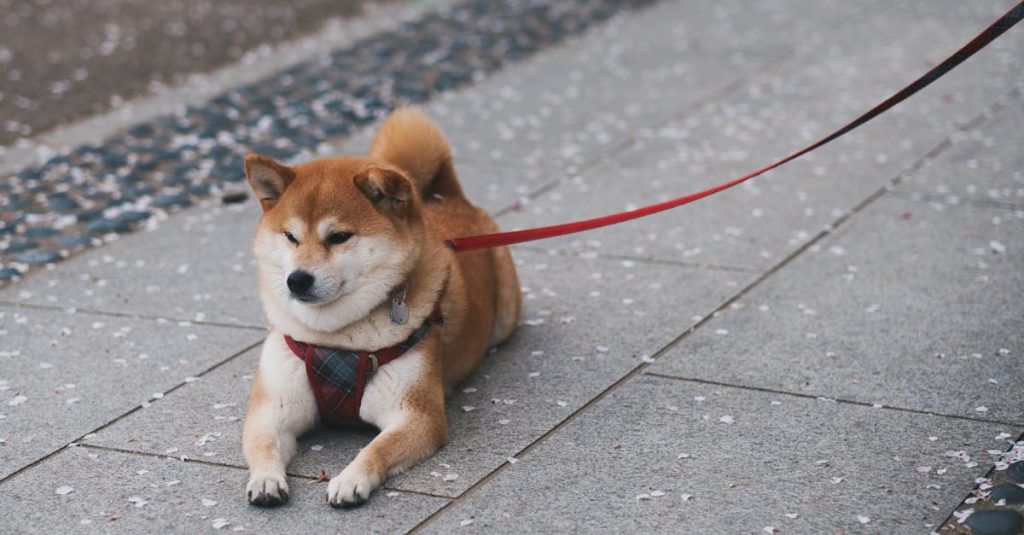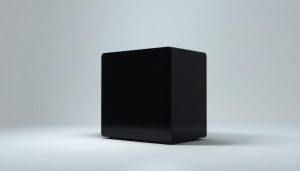Key Takeaways
- 🐶 Mini Shiba Inus are carefully bred, compact versions of the traditional Japanese breed, standing 10-14 inches tall and weighing 10-20 pounds, perfect for apartment living and urban environments
- 🦊 These miniature dogs maintain the iconic fox-like appearance, bold temperament, and intelligence of standard Shiba Inus while offering a more manageable size for diverse households
- 🧬 Miniaturization involves selective breeding techniques that preserve core genetic traits, ensuring mini Shiba Inus retain the breed’s distinctive characteristics like erect triangular ears and a thick double coat
- 💡 Mini Shiba Inus require consistent training and early socialization due to their independent and intelligent nature, making them ideal for experienced dog owners who can provide structured guidance
- 🏥 Potential owners should be aware of breed-specific health considerations, including genetic predispositions like patellar luxation and eye disorders, and commit to regular veterinary monitoring
- 💰 The total cost of owning a mini Shiba Inu ranges from initial purchasing prices of $1,500-$3,500 to ongoing monthly expenses of $100-$300, requiring significant financial and personal commitment
If you’re a dog lover searching for the perfect compact companion you’ve likely heard of the adorable mini Shiba Inu. These pint-sized versions of the classic Japanese breed have been capturing hearts with their fox-like appearance and spirited personalities. Despite their smaller stature these dogs pack all the charm and intelligence of their standard-sized counterparts.
Mini Shiba Inus aren’t just a trendy pet—they’re a carefully bred variation that offers the same bold temperament in a more apartment-friendly package. These tiny canines combine the legendary Shiba Inu traits of independence and loyalty with a more manageable size that’s perfect for urban dwellers or those with limited living space. Whether you’re a first-time dog owner or a seasoned pet parent these miniature companions might just be the perfect addition to your family.
What Is a Mini Shiba Inu?
A mini Shiba Inu represents a carefully bred smaller variant of the traditional Japanese breed. These compact dogs maintain the iconic fox-like appearance and spirited personality of standard Shiba Inus while offering a more apartment-friendly size.
Breed Origins and Background
The mini Shiba Inu emerged from selective breeding programs designed to create a smaller version of the original breed. Breeders focused on maintaining the core genetic traits of the Shiba Inu while gradually reducing their overall size through careful genetic selection.
Originating in Japan, these dogs descend from ancient hunting companions used by rural communities. The miniaturization process aimed to preserve the breed’s distinctive characteristics – including their bold temperament and intelligent nature – while making them more adaptable to urban living spaces.
Size and Physical Characteristics
Mini Shiba Inus typically stand between 10-14 inches tall and weigh approximately 10-20 pounds. Their compact size distinguishes them from standard Shiba Inus, which are generally 13-17 inches tall and weigh 17-23 pounds.
Physical attributes include:
- Triangular ears standing erect
- Thick double coat in colors like red, black and tan, or cream
- Muscular build with proportionate body structure
- Curled tail characteristic of the breed
These miniature dogs retain the robust physique and athletic build of their larger counterparts, embodying the same confident and alert demeanor in a more compact package.
Mini Shiba Inu vs Standard Shiba Inu
Mini Shiba Inus represent a compact variant of the classic breed, offering distinct characteristics that set them apart from standard-sized Shiba Inus. The differences between these two variants extend beyond mere size and encompass several critical aspects of breed characteristics.
Key Differences in Appearance
Mini Shiba Inus exhibit notable variations from standard Shiba Inus in physical dimensions and proportions. Standard Shiba Inus typically stand 14-17 inches tall and weigh 17-23 pounds, while mini Shiba Inus range between 10-14 inches in height and weigh 10-20 pounds.
Comparative physical traits include:
- Body Structure: Mini Shiba Inus maintain proportionally similar muscular builds to standard Shibas
- Coat Density: Both variants possess thick double coats with identical color variations
- Facial Features: Triangular ears and fox-like expressions remain consistent across sizes
- Tail Configuration: Curled tail characteristic preserved in mini versions
Genetic Considerations
Miniaturization of Shiba Inus involves specialized breeding techniques focused on selective genetic transmission. Breeders carefully select smaller-statured dogs with desirable breed traits to produce mini variants.
Key genetic strategies include:
- Selective Breeding: Choosing parent dogs with smaller body frames
- Genetic Diversity Maintenance: Preserving core breed characteristics
- Health Screening: Ensuring genetic soundness during miniaturization process
- Temperament Preservation: Maintaining bold Shiba Inu personality traits
Genetic considerations ensure mini Shiba Inus retain the breed’s fundamental characteristics while adapting to more compact living environments.
Temperament and Personality Traits
Mini Shiba Inus embody a complex personality characterized by intelligence and independent spirit. Their compact size does not diminish their bold and confident demeanor inherited from their traditional Japanese lineage.
Typical Behavior Patterns
Mini Shiba Inus display distinctive behavioral characteristics that set them apart from other small breeds. They exhibit high alertness with a natural tendency to be watchful and protective of their environment. These dogs demonstrate remarkable problem-solving skills and a strong-willed nature that requires consistent training approaches.
Characteristic behaviors include:
- Displaying sharp intelligence during training sessions
- Maintaining an independent attitude toward commands
- Showing quick responsiveness to structured interactions
- Exhibiting territorial instincts despite their small size
- Expressing minimal dependency on constant human attention
Suitability for Different Households
Mini Shiba Inus adapt well to various living environments based on specific household dynamics. Their compact size and moderate exercise requirements make them suitable for apartment dwellers and urban residents.
Ideal household configurations include:
- Single professionals with structured daily routines
- Families with older children who understand dog boundaries
- Experienced dog owners familiar with assertive breed characteristics
- Living spaces that provide mental stimulation and structured training opportunities
- Environments supporting moderate daily exercise and engagement
Compatibility factors involve understanding their independent nature and providing consistent training to channel their intelligent temperament effectively. Their adaptability depends on early socialization and patient interaction approaches that respect their inherent personality traits.
Care and Maintenance
Mini Shiba Inus require dedicated care to maintain their health and appearance. Their compact size and unique coat demand specific grooming and maintenance strategies that differ from larger dog breeds.
Grooming Requirements
Your mini Shiba Inu’s double coat requires consistent grooming to prevent matting and manage shedding. Brush your dog 3-4 times weekly using a slicker brush and undercoat rake to remove loose fur and distribute natural skin oils. During seasonal shedding periods (spring and fall), increase brushing frequency to daily to control excessive hair loss.
Bathing should occur every 6-8 weeks using dog-specific shampoo that preserves coat natural oils. Clean ears weekly to prevent infections and trim nails every 2-3 weeks to maintain proper paw health. Dental hygiene remains critical – brush teeth 2-3 times weekly to prevent tartar buildup and potential dental diseases.
Exercise and Activity Needs
Mini Shiba Inus possess high energy levels despite their small size. Provide 30-45 minutes of daily exercise through structured activities like brisk walks, interactive play sessions, and mental stimulation games. Short training exercises that challenge their intelligence help prevent boredom and destructive behaviors.
Incorporate varied activities such as:
- Fetch with compact toys
- Agility training
- Short hiking adventures
- Interactive puzzle games
- Obedience training sessions
Nutrition and Diet Recommendations
Select high-quality dog food specifically formulated for small breed dogs with high metabolism. Portion control remains essential to prevent obesity. Feed 1/2 to 1 cup of premium dry kibble daily, divided into two meals.
Recommended nutritional profile:
| Nutrient | Percentage |
|---|---|
| Protein | 25-30% |
| Fat | 12-15% |
| Carbohydrates | 40-45% |
Monitor calorie intake and adjust portions based on age, weight, and activity level. Consult your veterinarian for personalized dietary recommendations tailored to your mini Shiba Inu’s specific health requirements.
Health Considerations
Mini Shiba Inus require specialized health monitoring due to their unique genetic background. Understanding their potential health challenges helps owners provide optimal care and preventive treatments.
Common Health Issues
Mini Shiba Inus experience several breed-specific health conditions that demand careful attention. Potential health concerns include:
- Patellar Luxation: Knee joint displacement common in small dog breeds
- Eye Disorders: Progressive retinal atrophy and glaucoma risks
- Allergic Dermatitis: Skin irritation and inflammatory responses
- Dental Problems: Increased susceptibility to periodontal disease
Genetic Predispositions
Genetic screening plays a critical role in identifying potential inherited health risks. Mini Shiba Inus demonstrate predispositions to:
- Hip Dysplasia: Genetic joint malformation affecting mobility
- Hypothyroidism: Hormonal imbalance impacting metabolic functions
- Chylothorax: Rare chest cavity fluid accumulation
- Canine Immune-Mediated Hemolytic Anemia: Autoimmune blood disorder
- Consistent veterinary monitoring
- Balanced nutrition
- Regular exercise
- Preventive genetic health screenings
- Maintaining ideal body weight
Training and Socialization
Mini Shiba Inus demand consistent and strategic training approaches due to their intelligent and independent nature. Establishing a structured training regimen early ensures successful behavioral development and strong human-canine bonds.
Early Puppy Training Tips
Begin training your mini Shiba Inu puppy at 8-10 weeks old using positive reinforcement techniques. Focus on these critical training strategies:
- Establish clear command consistency using short 1-2 word verbal cues
- Implement reward-based training with high-value treats
- Practice short 5-10 minute training sessions multiple times daily
- Use clicker training for precise behavioral marking
- Introduce socialization experiences in controlled environments
Behavioral Challenges
Mini Shiba Inus present unique behavioral challenges stemming from their independent personality. Address these potential issues through:
- Preventing resource guarding through early desensitization
- Managing territorial behaviors with structured socialization
- Counteracting stubbornness using patient redirection techniques
- Mitigating potential aggression through consistent boundary setting
- Reducing separation anxiety with gradual alone-time training
Recognize that each mini Shiba Inu exhibits individual behavioral variations requiring personalized training approaches. Professional dog training consultations can provide tailored guidance for specific behavioral modifications.
Costs and Ownership
Owning a mini Shiba Inu involves significant financial and personal commitments beyond the initial purchase. Understanding the comprehensive costs and responsibilities ensures you’re prepared for this unique dog ownership experience.
Purchasing a Mini Shiba Inu
Mini Shiba Inu puppies range from $1,500 to $3,500 depending on lineage and breeder reputation. Purebred mini Shiba Inus with championship bloodlines can exceed $4,000. Factors influencing price include:
- Genetic pedigree
- Breeder certification
- Geographical location
- Coat color and quality
- Breed rarity
Expect additional initial expenses like:
- Initial veterinary checkup: $200-$300
- Vaccination series: $150-$250
- Microchipping: $45-$75
- Starter supplies: $300-$500
Ongoing Expenses
Monthly costs for a mini Shiba Inu typically range between $100-$300, encompassing:
| Expense Category | Estimated Monthly Cost |
|---|---|
| Premium Dog Food | $50-$80 |
| Veterinary Care | $30-$60 |
| Grooming Supplies | $20-$40 |
| Preventative Medications | $15-$30 |
| Training/Accessories | $20-$50 |
Breeder Selection
Selecting a reputable mini Shiba Inu breeder requires thorough research. Prioritize breeders who:
- Provide comprehensive health certificates
- Demonstrate transparent genetic screening
- Allow facility visitations
- Offer post-purchase support
- Specialize exclusively in Shiba Inu breeding
- Genetic health documentation
- Puppy socialization practices
- Parent dog health history
- Professional breeding credentials
Conclusion
Bringing a mini Shiba Inu into your life is an exciting journey that requires careful consideration and commitment. These compact yet spirited companions offer a unique blend of intelligence charm and adaptability that can enrich your household in countless ways.
By understanding their specific needs genetic background and care requirements you’ll be well-prepared to provide a loving and supportive environment. Whether you’re a first-time dog owner or an experienced pet parent a mini Shiba Inu can become an exceptional four-legged friend who brings joy adventure and unwavering loyalty to your daily life.
Remember that responsible ownership means investing time energy and resources into their physical and emotional well-being. With proper training socialization and dedicated care your mini Shiba Inu will undoubtedly become an irreplaceable member of your family.
Frequently Asked Questions
What is a mini Shiba Inu?
A mini Shiba Inu is a smaller variant of the traditional Japanese breed, carefully bred to maintain the classic Shiba Inu characteristics while being more compact. They typically stand 10-14 inches tall and weigh 10-20 pounds, making them ideal for apartment living. These dogs retain the bold personality, fox-like appearance, and intelligence of their larger counterparts, offering a perfect option for urban dog owners seeking a smaller companion.
How are mini Shiba Inus different from standard Shiba Inus?
Mini Shiba Inus differ primarily in size from standard Shiba Inus. While standard breeds stand 14-17 inches tall and weigh 17-23 pounds, mini versions are smaller, ranging 10-14 inches in height and 10-20 pounds in weight. Despite the size difference, both variants share similar physical traits like triangular ears, thick double coats, muscular builds, and curled tails. Their core temperament, personality, and genetic background remain consistent across both size variations.
Are mini Shiba Inus good for families?
Mini Shiba Inus can be good for families with older children who understand how to respectfully interact with dogs. They are intelligent, independent, and require consistent training. They’re best suited for experienced dog owners who can provide structured socialization and clear boundaries. Families with very young children might find their strong-willed nature challenging. Proper early socialization and training are crucial to ensure a harmonious relationship.
How much exercise do mini Shiba Inus need?
Mini Shiba Inus require 30-45 minutes of daily exercise to maintain their physical and mental health. Activities can include brisk walks, interactive play sessions, puzzle toys, and short training exercises. Despite their small size, they are energetic and need consistent stimulation. Their exercise routine should balance physical activity with mental challenges to prevent boredom and potential destructive behaviors. Varied activities help keep them engaged and healthy.
What are common health concerns for mini Shiba Inus?
Mini Shiba Inus may experience health issues like patellar luxation, eye disorders, allergic dermatitis, and dental problems. They can also be genetically predisposed to hip dysplasia, hypothyroidism, and immune-related conditions. Regular veterinary check-ups, preventive genetic health screenings, balanced nutrition, and maintaining an ideal body weight are crucial. Responsible breeding and comprehensive health monitoring can help mitigate potential genetic health risks.
How much does a mini Shiba Inu cost?
Mini Shiba Inu puppies typically cost between $1,500 to $3,500, depending on breeder reputation and lineage. Initial expenses include veterinary checkups and vaccinations. Monthly maintenance costs range from $100 to $300, covering food, healthcare, grooming supplies, and training. Potential owners should budget for ongoing expenses and choose reputable breeders who provide comprehensive health documentation and post-purchase support.
What is the grooming requirement for mini Shiba Inus?
Mini Shiba Inus have a dense double coat requiring frequent grooming. Brush them 3-4 times weekly, increasing frequency during shedding seasons. Regular bathing, ear cleaning, nail trimming, and dental hygiene are essential. Their coat naturally repels dirt, so excessive bathing isn’t necessary. Professional grooming every few months can help maintain coat health and manage shedding. Consistent grooming prevents matting and supports overall skin and coat wellness.
Are mini Shiba Inus easy to train?
Mini Shiba Inus are intelligent but independent, making training challenging. They respond best to positive reinforcement techniques, consistent training, and early socialization. Their strong-willed nature requires patient, structured approaches. Short, engaging training sessions work best. Professional training might be beneficial for first-time owners. Understanding their independent personality and using reward-based methods can help successfully manage their training process.















